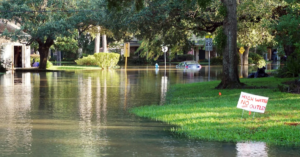
The Push for Equitable Funds for Nature-Based Solutions
Canadian municipalities face a multitude of financial challenges as they continue to be tasked with downloading services and maintaining and replacing aging infrastructure. For many

Canadian municipalities face a multitude of financial challenges as they continue to be tasked with downloading services and maintaining and replacing aging infrastructure. For many

The UK Climate Impacts Programme (UKCIP) was established by the UK Government in 1997 to coordinate research into the likely impacts of climate change in

The Town of Whitby has implemented robust infrastructure asset management practices, which has allowed the Ontario community to disaggregate pooled assets and refine its data,

The planet has just finished its hottest decade on record, leaving municipalities and businesses wondering how best to prepare for the future. As climate change

Municipal revenue generation methods have remained relatively consistent since before the confederation in 1867. The primary method of tax generation being property tax. Some form

It has been a decade since the Public Sector Accounting Board (PSAB) required local governments to incorporate capital assets into financial statements with PS 3150.

Small communities in Canada may serve fewer citizens and own fewer assets, but they are still required to deliver the same range of necessary services

The Flaw of Averages occurs when uncertainties are replaced by single number average estimates. It states that plans based on average assumptions are wrong on

There is increasing focus on the fiscal health of Canadian local governments in the wake of challenging economic conditions, both in our country and worldwide.

The first time I experienced a raclette dinner party, the host told me with delight, “everyone loves raclette because you choose what to eat and